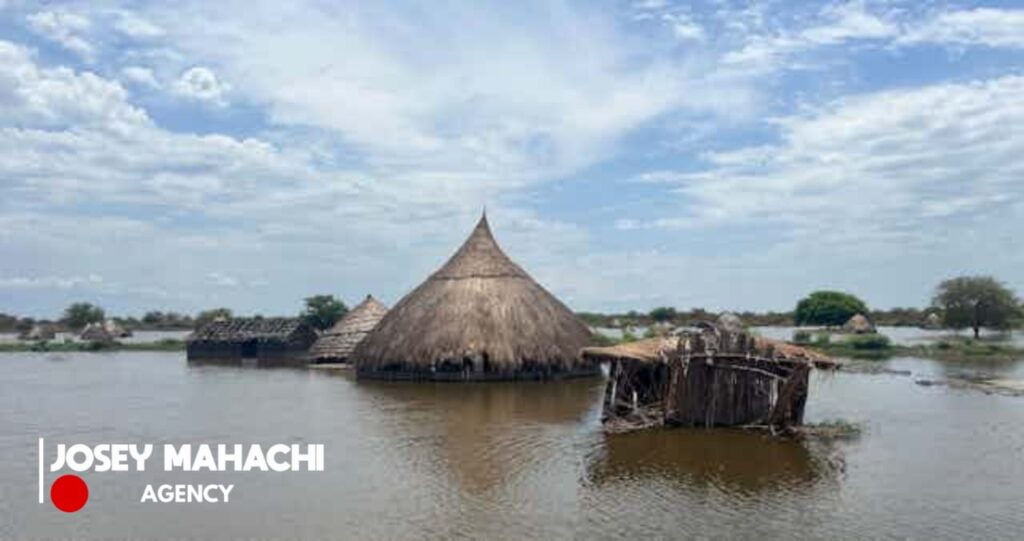By : Lloyd Mahachi
Flooding in South Sudan has displaced more than 379,000 people, according to a United Nations update, which also warned of a surge in malaria. The UN Office for the Coordination of Humanitarian Affairs (OCHA) reported that the floods have affected approximately 1.4 million people across 43 counties and the disputed Abyei region.
The affected areas include Jonglei, Unity, Upper Nile, Northern Bahr el Ghazal, Central Equatoria, and Western Equatoria states, where the health system is overwhelmed by the malaria outbreak. South Sudan, the world’s youngest country, is highly vulnerable to climate change and is experiencing its worst flooding in decades, primarily in the north.
Since gaining independence from Sudan in 2011, South Sudan has struggled with chronic instability, violence, economic stagnation, and climate disasters such as drought and floods. The latest floods have worsened an already critical humanitarian situation, marked by severe food insecurity, economic decline, continued conflict, disease outbreaks, and the repercussions of the Sudan conflict.
More than seven million people are food insecure in South Sudan, and 1.65 million children are malnourished, according to the UN’s World Food Programme. The country’s oil resources, its primary source of revenue, were severely impacted when an export pipeline was damaged in neighbouring Sudan in February.
The floods and resulting humanitarian crisis come as South Sudan faces a further period of political paralysis. The president’s office announced in September an extension to the transitional period agreed upon in the 2018 peace deal, delaying elections by two years to December 2026. The international community is calling for urgent action to address the humanitarian crisis and support those affected by the floods.
Aid agencies are working to provide relief to affected communities, but the scale of the disaster poses significant challenges. The surge in malaria has added to the complexity of the response, requiring immediate attention and resources to prevent further suffering and loss of life.
Editor : Josephine Mahachi

